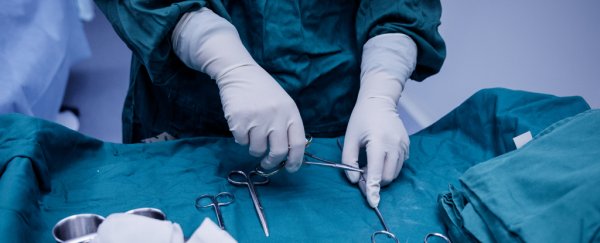Concerns have swirled around the origins of China's human organ supply for decades, and grisly new findings confirm these longstanding fears remain as justified as ever.
An independent tribunal established to investigate claims of forced organ harvesting in China has determined that a pervasive campaign of human rights abuses bordering on genocide is the primary source of the nation's lavish stock of body parts for transplant procedures.
Despite Chinese assertions that it ceased the practice of removing body parts from executed prisoners years ago, the China Tribunal – led by prominent lawyers, human rights experts, and a transplant surgeon – unanimously determined that widespread organ harvesting from prisoners and dissidents remains an ongoing horror inside China.
"The conclusion shows that very many people have died indescribably hideous deaths for no reason, that more may suffer in similar ways," Sir Geoffrey Nice QC said on Monday while delivering the panel's final judgement.
"There is no evidence of the practice having been stopped and the tribunal is satisfied that it is continuing."
After months of considering witness testimony and a giant trove of documentary evidence, the tribunal said it was clear that the official line on transplants in China simply didn't add up.
Extraordinarily short waiting times (sometimes only weeks or less) for transplant procedures are common in China, suggestive of a rich surplus of compatible organs – but where do the endless body parts come from?
One study of the anomalies found that in a 10-day stretch in 2016, 640 organs were transplanted, although just 30 donors were officially listed – suggesting each donor would have given up over 21 body parts on average.
Concerns over these kinds of figures has led other researchers to conclude that hundreds of Chinese scientific papers might be compromised due to their reliance upon thousands of unethically sourced organs.
In context, though, the human costs alone outweigh any peripheral implications, scientific or otherwise – a dire fact made plain by some of the witnesses in the investigation.
Enver Tohti, a former Chinese surgeon who gave evidence at the hearings, told how he was ordered to "cut deep and work fast" as a young surgeon working at an execution site in northwest China.
While extracting the liver and kidneys from an executed victim who had been shot in the head and dumped by the side of a road, Tohti made a horrifying discovery.
"I started cutting down the middle and then he started struggling and I knew then that he was still alive, but he was too weak to resist me, " Tohti told The Telegraph.
Accounts like these – and reports that Chinese doctors readily admit to undercover investigators that body parts in the hospital system are illegally sourced from members of the persecuted spiritual group, Falun Gong – convinced the panel there was "direct and indirect evidence of forced organ harvesting".
In its "unavoidable" final conclusion, the China Tribunal found forced organ harvesting has been committed for years throughout China on a significant scale, primarily sourcing body parts from detained Falun Gong practitioners, and possibly also an ethnic minority called the Uyghurs (although other groups are also targeted).
While stopping short of concluding that the killing and forced organ removal of these peoples constitutes genocide in its legal definition (due to a lack of proof of actual intent to commit genocide), the panel nonetheless condemned the forced organ removals as a crime against humanity and an act of "unmatched wickedness".
As it stands, the true scale of the horrors will probably never be known, but the tribunal estimates as many as 90,000 organ transplants take place in China every year, in an industry worth US$1 billion annually.
While the panel's ruling has no legal effect, it may help influence other international bodies, such as the United Nations, as well as governments, institutions, and companies that do business with China.
"I was a prosecutor for 10 years. The evidence is overwhelming," human rights advocate David Kilgour, who testified at the hearings, told Australia's ABC network.
"This crime is not only continuing, we document that it's in fact getting worse. The machinery that's taking organs from Falun Gong is getting greater, not smaller."
The China Tribunal's short-form findings are available at the organisation's website, with the panel's summary and full reports set to be released soon.
